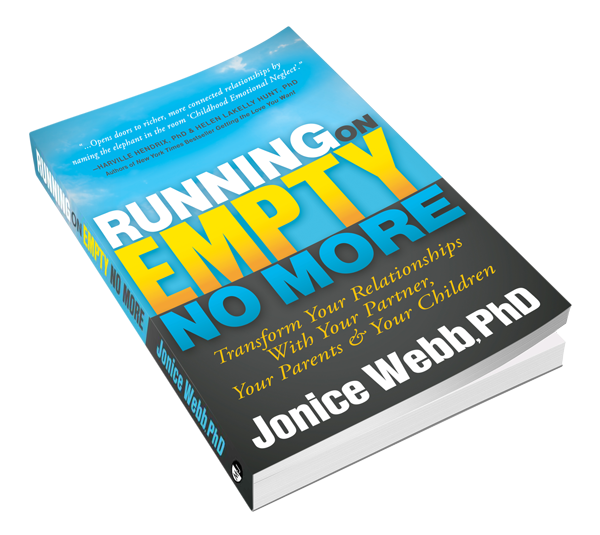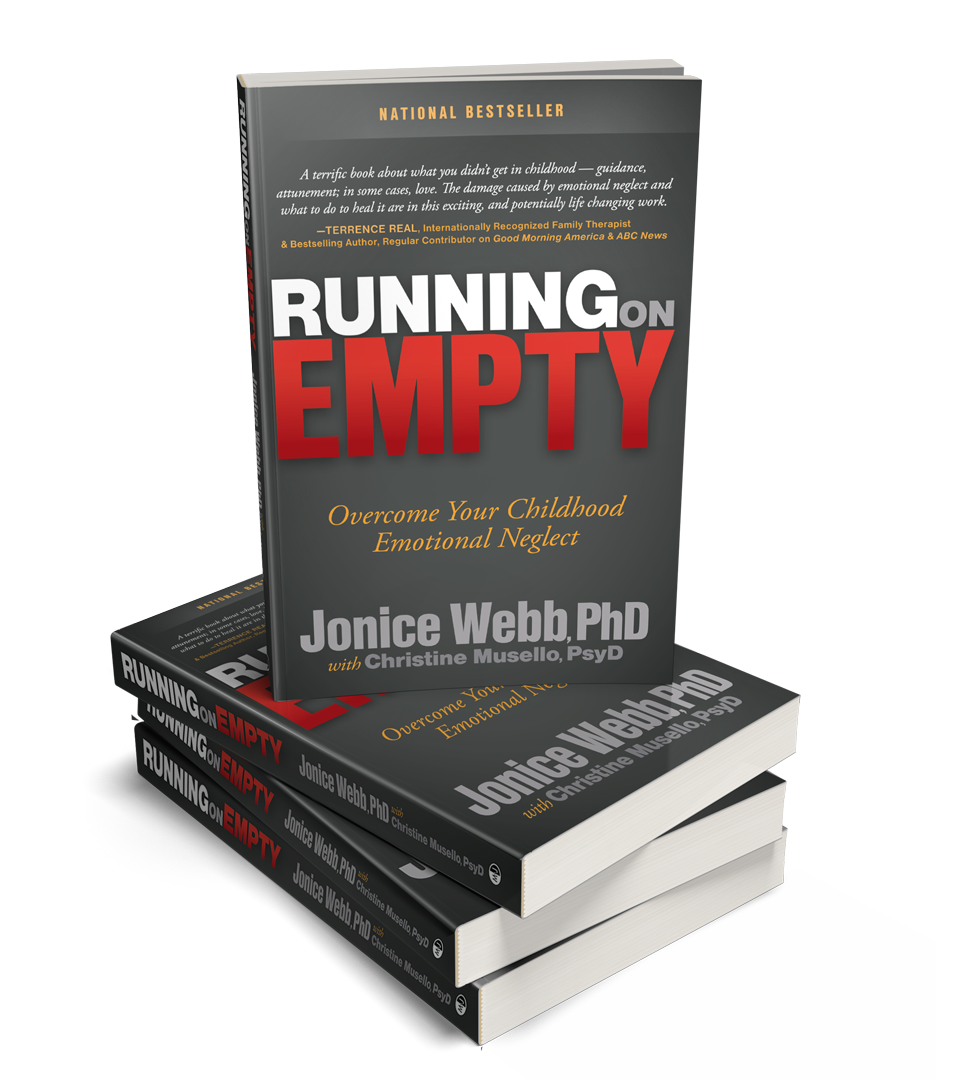Therapist Resources and Tools
Thanks for visiting the CEN Resource Center For Therapists. I appreciate your interest in the topic of Childhood Emotional Neglect, or CEN. Realizing the weight of CEN in the therapy room has literally changed the way I practice psychology, and I believe it will do the same for you.
Childhood Emotional Neglect: A parent’s failure to respond enough to the child’s emotional needs.
Children whose parents ignore their emotions receive a powerful, subliminal message:
Your feelings don’t matter.
So they push their emotions far away, walling them off so they will not burden anyone. This coping mechanism may get them through their childhood, but it leaves them entering adulthood, and possibly spending decades disconnected from the most deeply personal, biological expression of who they are: their emotions.

I have identified a particular pattern of characteristics in adults who experienced CEN as a child. They include, among others, struggles with emotional awareness; self-blame; feelings of emptiness; problems with self-discipline; and a deep-seated feeling that “something is wrong with me,” which I call the Fatal Flaw.
I have found that keeping Emotional Neglect in the forefront of my mind, and talking about it specifically with patients has made me a far more effective therapist. I feel that for years, I was like the proverbial blind man, treating parts of the elephant – unaware that there was a whole elephant to which I should be attending.
- I now have a way of understanding why clients who recall having had a fine childhood are struggling with self-discipline, emptiness, or even suicidal thoughts.
- I now know how to understand and work with a patient who is counter-dependent, or has low emotional intelligence, self-directed anger or self-blame.
- I can address suicidal thoughts and feelings on a whole new level.
- I have the words to talk directly to people about what’s really wrong.
Fill out the form below to join my Therapist Newsletter, and if you are licensed and have read Running on Empty or taken one of my trainings, I will add you to my Find A Therapist List to receive referrals from me.
Learn About CEN
May/June of 2019 - Announcing Three New Online Therapist Trainings.
- The Fuel Up For Life Program: Heal your own Childhood Emotional Neglect while learning in a deep way how to help your clients!
- The Fuel Up For Life For Therapists Program: Take the Fuel UP For Life Program, but without the online support forum or Q&A Calls. Deep learning about how to treat CEN without the personal support aspect of the program.
- Treating Childhood Emotional Neglect: An Overview. This 2-hour training is a perfect introduction to treating CEN in your office. How do you identify it in your clients? How do you help your clients see it? How do you challenge their defenses? This overview covers it all.
October 21-23, 2022 The Art of Living Retreat Center - CEN Recovery Retreat for laypeople and therapists (sorry, no CE for therapists) among the Blue Ridge Mountains in Boone, NC October 21-23, 2022. Fuel Up Your Feelings.
2019 - 1440 Multiversity in Scotts Valley, CA - August 23-25, 2019. Two-day retreat and therapist training, Childhood Emotional Neglect Recovery Retreat, Feeling As Fuel: Using Inner Resources For Healing & Happiness. It was for laypeople and therapists. Approved for licensed psychologists for 8 CE credits and for licensed social workers for 9 CEU credits.
2019 - Kripalu Center in Western Massachusetts - May 3-5, 2019 Two-day, Childhood Emotional Neglect Recovery Retreat, Fuel Up With Feeling: Reclaim Your Inner Resources For Healing & Happiness for laypeople and therapists. Licensed psychologists earned 8 CE credits. Licensed social workers earned 8 CEU credits. Many Mental Health Counselors able to receive credits via the APA - check with your local Licensing Board.
2017 - Goodtherapy.org Online CEN Training - If you are a member of Goodtherapy.org you can take my CE training program for therapists, Identifying and Treating Childhood Emotional Neglect in Adults online free! You will earn 2 free CE/CEU’s. Email me your CE certificate, and you will receive special designation on my list of CEN providers.
Articles For Therapists
The Story Of Childhood Emotional Neglect
Childhood Emotional Neglect: Stage 1 Recovery Worksheet For Therapists and Clients
Emotional Neglect and Emotional Deprivation Are Not The Same
How to Identify Childhood Emotional Neglect In Your Clients
About Childhood Emotional Neglect: For Mental Health Professionals
The Fuel Up For Life Program
If you would like to help your patient further, click here to learn more about my Fuel Up for Life program. I designed it to be a perfect adjunct to therapy. It will guide you and your CEN clients through the steps of recovery.
The CEN Questionnaire
As you become more aware of CEN in your clients, you’ll probably find yourself wondering if particular clients have CEN. Or, you may want your client to get confirmation of his or her Childhood Emotional Neglect. This is why I created The CEN Questionnaire (linked below). It takes less than 3 minutes to take it, and many clients find it validating of their experience. I invite you to take the questionnaire yourself. And feel free to have your clients visit my website to take the questionnaire as needed.
Just click on the link below to take the CEN Questionnaire.

Since the publication of Running on Empty: Overcome Your Childhood Emotional Neglect, many thousands of people have learned that invisible Childhood Emotional Neglect, or CEN, has been weighing on them their entire lives, and are now in the process of recovery. Running on Empty No More: Transform Your Relationships takes the concept o Childhood Emotional Neglect further into life-changing possibilities.
How do you reach out to your distant spouse? How do you make sure you don't emotionally neglect your own children? How do you emotionally validate your young child, your teenager or your adult child? How do you raise your kids with emotional intelligence? How do you interact with the parents who emotionally neglected you? Can you and should you talk with your loved ones about the Emotional Neglect that saps the depth and richness from your relationship with them?
In Running On Empty No More: Transform Your Relationships With Your Partner, Your Parents and Your Children, you will learn even more solutions for the effects of CEN on your life: how to talk about CEN, and heal it, in relationships with the people you love the most.
Running on Empty is the first self-help book about Emotional Neglect: an invisible force from your childhood which you can’t see, but may be affecting you profoundly to this day. It is about what didn’t happen in your childhood, what wasn’t said, and what cannot be remembered.
Do you sometimes feel as if you’re just going through the motions in life? Are you good at looking and acting as if you’re fine, but secretly feel lonely and disconnected? Perhaps you have a fine life and are good at your work, but somehow it’s just not enough to make you happy.
If so, you are not alone. The world is full of people who have an innate sense that something is wrong with them. Who feel they live on the outside looking in, but have no explanation for their feeling and no way to put it into words. Who blame themselves for not being happier.
If you are one of these people, you may fear that you are not connected enough to your spouse, or that you don’t feel pleasure or love as profoundly as others do. Perhaps when you do experience strong emotions, you have difficulty understanding or tolerating them. You may drink too much, or eat too much, or risk too much, in an attempt to feel something good.
In over twenty years of practicing psychology, many people have arrived in Jonice Webb’s office, driven by the threat of divorce or the onset of depression, or by loneliness, and said, “”Something is missing in me.””
Running on Empty will give you clear strategies for how to heal, and offers a special chapter for mental health professionals. In the world of human suffering, this book is an Emotional Smart Bomb meant to eradicate the effects of an invisible enemy.


